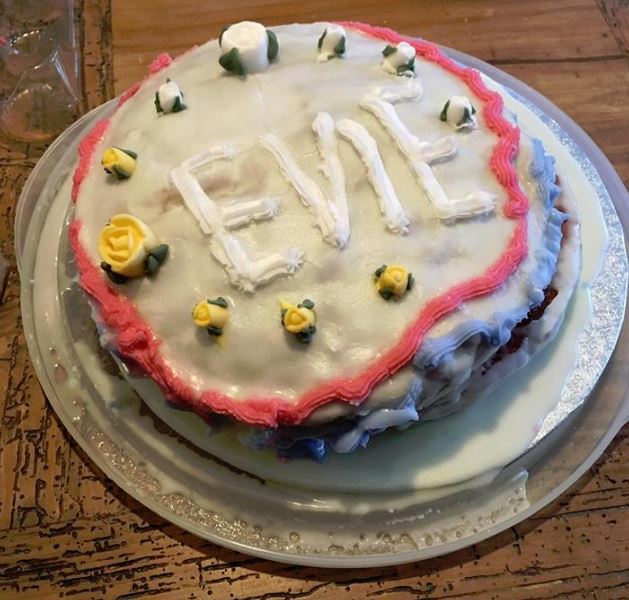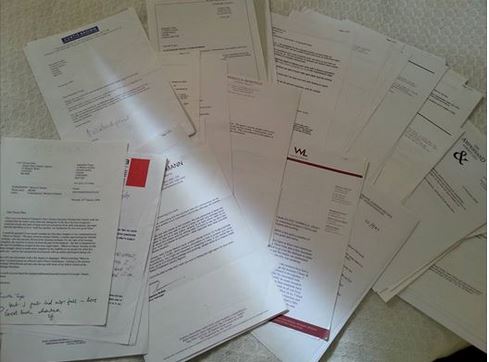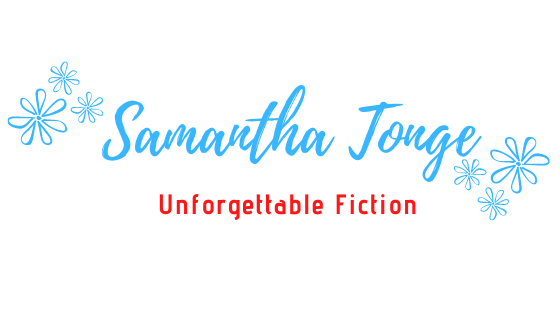When it comes to finding success, writing is much like baking. At the weekend I went to author Christie Barlow‘s publication party and was determined to take a cake to celebrate. However, my scales were broken, so I decided I was such a good baker, I could guess the ingredients’ weights. What a mistake. That cake ended up in the bin. The next cake’s icing was too runny but looked okay. So we strapped the cake onto the car’s back seat and off we set – not thinking that the backseat is set at angle, plus the heating was on. Needless to say, the icing melted and the top layer off sponge slid off. The result is below!

I’ve always prided myself on my baking but learnt many lessons from this episode and, effectively, this failure will (hopefully) lead to success next time I attempt such a cake. And it is much the same for writing. I have failed time and time again over the years – still do – but those failures were/are essential, in order for me to learn to improve and hopefully succeed.
When I first started writing, hands up, I felt a teeny sense of entitlement – I’d written a novel. Not many people did that. Surely I deserved a publishing deal? Time and time again I’d be disappointed when rejections came back. But these continued failures eventually made me realise my expectations were not realistic. If I’d given up writing after the first book, I’d probably, still to this day, be thinking that that particular book deserved a contract. But by not giving up, and continuing to fail in this way, I eventually realised that to succeed, I needed to wake up and understand that writing a novel was just the beginning of a very long journey to finding a book deal. And I thank goodness now that my first manuscript never saw the light of day! I learned a lot from all the rejection letters, pictured below.

Also, at the beginning, I kept making the same two mistakes – I’d create a main character that came across as whiny (I thought she was simply sharing her angst) and I would also drop a lot of backstory into the first few chapters. Being told where I was going wrong, more than once, eventually made me work really hard at developing appealing protagonists and opening chapters that dived straight into the immediate action instead of giving away the plot of the whole book before I’d hardly started.
I wrote several books before I eventually signed my deal in 2013 – no, I’m not saying how many! And, I learnt so much from each “failure”. One, for example, was a totally high concept book preceded by nothing on the shelves. Agents and publishers had no idea where to place it. I’d written 100% what I wanted, without keeping an eye on the market. And I’m all for that, if you aren’t so concerned about publication or sales figures, but writing is my job, I have bills to pay, I can’t afford to take a risk at the moment. So I learnt that, whilst writing from the heart is paramount, to fulfil my own personal aspirations I must keep an eye on the current market and be prepared to make small compromises in order to make sure that any book I create will fit into a genre already out there.
In fact, that reminds me… the original idea for my bestselling 2015 novel, Game of Scones, was set in… heaven. Ahem, I can still remember my editor’s face when we discussed it. I’d failed to realise that I needed to keep within my brand. I learnt through this and came up with a different idea that I loved. It taught me to think more about readers and what they want/expect from me.
Rejections can be seen as failures. But they aren’t. They are simply the industry’s way of telling you there is more to learn. I can honestly say that every author I know, who has been determined and persevered over the years, humbly learning from their mistakes, has “made it”.
Nor should bad reviews be seen as failures. I’ve learnt a lot from the constructive ones and, hopefully, they have helped me improved my craft and inch nearer to success.
So, try to keep some perspective when you feel you have failed. You haven’t. Don’t ever think you are a write-off. No doubt Mary Berry suffered many soggy bottoms when she first started out! It is hard. I’ve shed tears. Proclaimed at the unfairness of it all. But we aren’t failing if we put our work out there. That takes guts. And the bravest part is being able to admit when we are wrong and start again.
As Colin Powell once said:
‘There are no secrets to success. It is the result of preparation, hard work and learning from failure.”


Brilliant post Sam and thanks for the advice was lovely to see you X
Thanks Annette – great to see you too. Now, get writing your book! 🙂 Sam x
What an excellent post. It is something I can relate to. I have written four novels and with each rejection I have learnt more about my craft. When I look back at my first it is with embarrassment especially when it is compared to the one I have just finished. Thank you for sharing your thoughts on rejection.
Thanks for reading, Elaine. Yes, it is so satisfying to realise we are improving, isn’t it? And I also cringe when I look back at my first manuscripts and wonder why I used to think they were good! Good luck with your writing.
You make me feel so much better! My novel has just been consigned to the dustbin following umpteen rejections, and there have been tears! But I’m still writing and maybe one day I’ll get it right too. And I’d happily eat that cake, by the way, still looks delicious!
Thanks Liz!
And chin up, yes, I guess tears are part of our job, writers are sensitive creatures. Just remember that NO novel is ever wasted, even it if never sees print, because we have learnt so much whilst creating it. I know it is hard, but keep on going, you’ll get there.
I meant to take a slice of cake with me for the train!! So lovely to meet you again on Saturday xx
You too, Joanne! xx
Love this. It’s so inspiring and encouraging, without blowing sunshine where there shouldn’t be.
Thanks very much, Wendy!
And of course, it is always worth bearing in mind that editors can – quite often -be *wrong!* And that stories come back into fashion – but editors can be wrong, quite often. Sometimes, some of them are actually wrong about your book – others may then be right and publish it to great success. This does not apply now, I hasten to add – I’m saying that in a time and place where I have the best editors I’ve ever had. But from experience, and not just my own, sometimes you have to go with your vision.
Yes, you have to follow your heart and have belief in your ideas – but if agents and publishers are both saying the same thing (which was the case for me) then I think it is naive not to take note. So glad you are in a happier place now!
Great post, as usual! 🙂 And very uplifting for a Monday morning. Thanks for the pep talk. ❤
Aw, thanks for popping by, Victoria 🙂
Brilliant post, Sam. Think I might just pinch this line… ‘Rejections … are simply the industry’s way of telling you there is more to learn.’
Thanks Rae 🙂 Pinch away! x
So very true, Sam. I not only look at my first novel and think, ‘oh dear,’ but at some of the first short stories I sent off. It’s a wonder they didn’t ban me from ever sending again! It’s a learning curve and we all need to do our apprenticeship. I’ve met people at writing class who’ve been distraught at having their first, hardly edited, manuscripts rejected and I always think they won’t last long in this game. Sure enough, they drift away, disheartened.
Yes, it’s very sad, Francesca, there’s probably lots of great writers out there who gave up because they never thought they’d succeed. You just need to keep on trucking 🙂 Gosh, yes, my first short stories were dreadful too!
Thank you for sharing this. It’s always good to be reminded that failures are just bringing us that much closer to successes.
It’s also always good to think about cake, in my opinion. 😉
Lol, yes I agree Caroline – writing and cake, what better things to think about?!